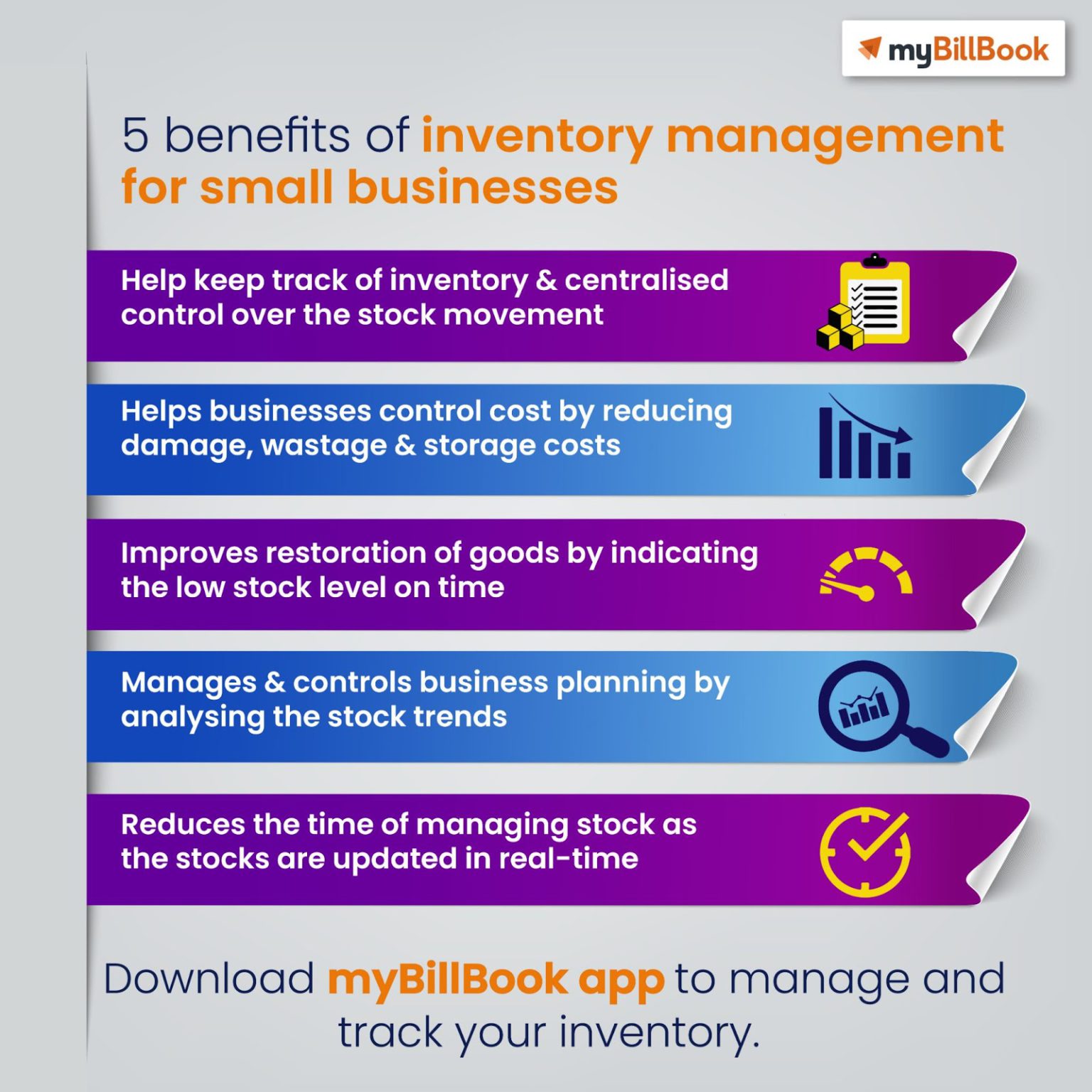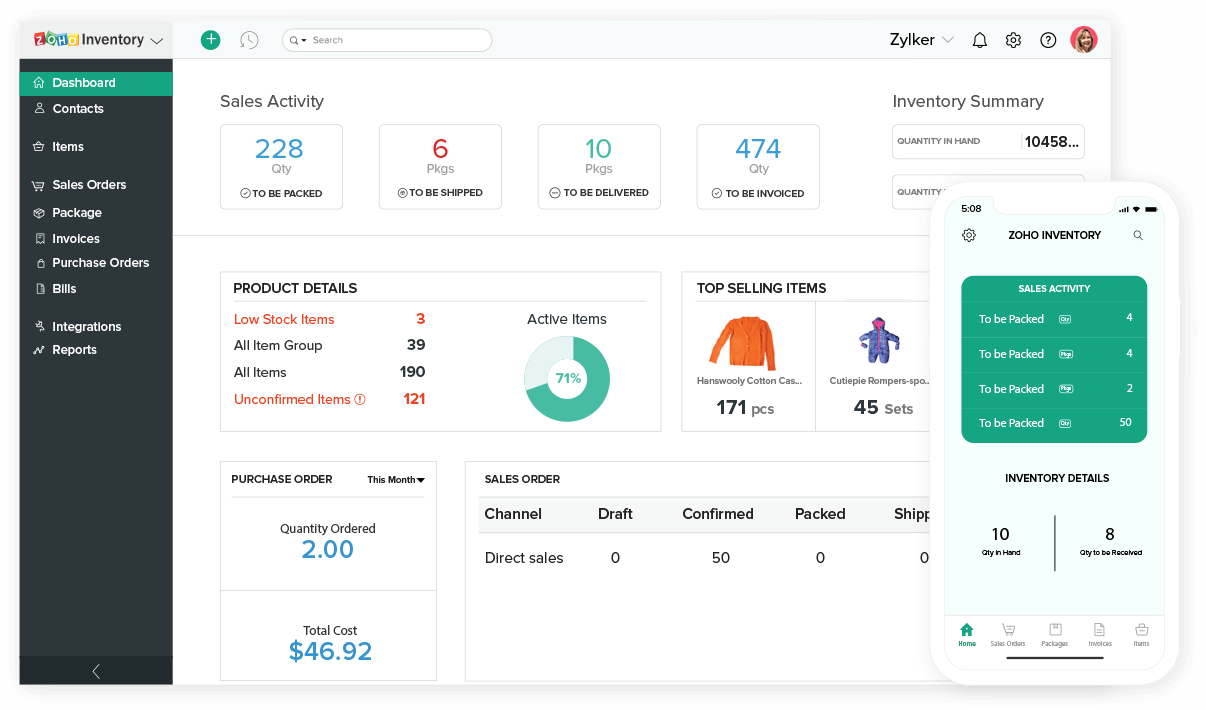In today’s competitive business landscape, having an efficient and accurate inventory system is crucial for small businesses. The best inventory system for small business can streamline operations, reduce costs, and increase profits. This guide will provide you with the essential information you need to choose and implement the right inventory system for your business.
We will discuss the unique challenges faced by small businesses in managing inventory, the essential features to look for in an inventory system, and the different types of inventory systems available. We will also provide tips and best practices for using an inventory system effectively.
Key Considerations for Small Business Inventory Systems

Small businesses face unique challenges in managing their inventory effectively. They typically have limited resources, a small staff, and a need for cost-effective solutions. To address these challenges, it’s essential to consider key factors when selecting an inventory system.
Here are some of the essential features to look for in an inventory system for small businesses:
Ease of Use
Small businesses often have limited time and resources for training staff on complex software. An inventory system should be user-friendly and intuitive, with a simple interface that can be easily navigated by employees with minimal training.
Cost-Effectiveness
Small businesses have limited budgets, so cost is a critical factor when choosing an inventory system. Look for systems that offer affordable pricing plans and flexible payment options to meet your specific needs.
Scalability, Best inventory system for small business
As your business grows, your inventory needs may change. Choose an inventory system that can scale with your business and accommodate your expanding inventory and operations.
Integration with Other Systems
An inventory system that integrates with your other business systems, such as accounting or e-commerce platforms, can streamline operations and improve efficiency.
Reporting and Analytics
Inventory systems should provide robust reporting and analytics capabilities to help you track inventory levels, identify trends, and make informed decisions about your inventory management.
Cloud-Based
Cloud-based inventory systems offer several advantages for small businesses, including accessibility from anywhere with an internet connection, automatic updates, and reduced hardware costs.
Mobile Compatibility
With the increasing use of mobile devices in business, choose an inventory system that offers mobile compatibility, allowing you to manage your inventory on the go.
Customer Support
Reliable customer support is crucial for small businesses that may not have in-house IT resources. Look for an inventory system provider that offers responsive and helpful customer support.
Types of Inventory Systems for Small Businesses
Inventory systems are crucial for small businesses to effectively manage their stock levels, streamline operations, and optimize profitability. Choosing the right inventory system depends on factors such as business size, product range, and budget. Here’s a comprehensive comparison of the different types of inventory systems available for small businesses:
| Type | Features | Benefits | Drawbacks | Pricing |
|---|---|---|---|---|
| Manual | – Physical records, such as spreadsheets or notebooks
|
– Low cost
|
– Time-consuming and prone to errors
|
– Free or low-cost |
| Spreadsheet-Based | – Digital spreadsheets (e.g., Microsoft Excel, Google Sheets)
|
– More efficient than manual systems
|
– Can be complex to set up and maintain
|
– Free or low-cost |
| Cloud-Based | – Software hosted online
|
– Automated inventory management
|
– Can be more expensive
|
– Monthly subscription fees (typically based on features and usage) |
Popular Inventory Systems within Each Category
- Manual:Pen and paper, Excel, Google Sheets
- Spreadsheet-Based:Microsoft Excel, Google Sheets, Airtable
- Cloud-Based:QuickBooks Online, Shopify, Square
Benefits of Using an Inventory System for Small Businesses
Implementing an inventory system can provide significant advantages for small businesses, enhancing efficiency, accuracy, and profitability. Let’s explore the key benefits:
Improved Efficiency and Accuracy
An inventory system streamlines inventory management, reducing manual processes and human errors. Automated tracking systems ensure accurate and up-to-date inventory records, eliminating the need for manual counting and reconciliation.
Reduced Costs
Inventory systems help businesses optimize inventory levels, preventing overstocking and understocking. By maintaining optimal inventory levels, businesses can reduce storage costs, minimize waste, and avoid lost sales due to stockouts.
Increased Profits
Effective inventory management leads to increased profits by reducing carrying costs and improving sales efficiency. Businesses can make informed decisions about pricing and promotions based on real-time inventory data, maximizing revenue and minimizing losses.
Case Studies and Testimonials
Numerous small businesses have experienced significant benefits from using inventory systems:
- “Our inventory system reduced our inventory shrinkage by 20%, saving us thousands of dollars annually.” – Small retail store owner
- “We increased our sales by 15% after implementing an inventory system that improved our product availability.” – Online retailer
- “The inventory system has freed up my time, allowing me to focus on growing my business instead of managing inventory manually.” – Entrepreneur
Choosing the Right Inventory System for Your Small Business
Selecting the ideal inventory system for your small business is crucial for efficient operations. Consider the following factors to make an informed decision:
- Business Size:Small businesses with limited inventory needs may opt for simpler systems, while larger businesses require more robust solutions.
- Industry:Different industries have specific inventory management requirements. Choose a system tailored to your industry’s needs.
- Budget:Inventory systems vary in cost. Determine your budget and explore options within that range.
- Scalability:Consider the potential for business growth. Choose a system that can scale with your operations as needed.
- Integration:Seamless integration with other business systems, such as accounting or CRM, can streamline processes and improve efficiency.
By evaluating these factors, you can narrow down your options and select the inventory system that best aligns with your small business’s unique requirements.
Best Practices for Using an Inventory System

An inventory system can be a valuable tool for small businesses, but only if it is used effectively. Here are some tips and best practices to help you get the most out of your inventory system:
Setting up your inventory system correctly is essential for its success. This includes creating accurate product listings, setting up reorder points, and training your staff on how to use the system.
Training Staff
Training your staff on how to use the inventory system is essential to ensure that it is used correctly. This training should cover all aspects of the system, from entering new products to generating reports.
Managing Inventory Levels Effectively
Managing inventory levels effectively is critical to avoiding stockouts and overstocking. This involves setting reorder points, tracking inventory levels, and using inventory reports to identify trends and make informed decisions.
Using Barcodes and RFID Technology
Barcodes and RFID technology can be used to enhance inventory accuracy. Barcodes can be scanned to quickly and easily identify products, while RFID tags can be used to track products throughout the supply chain.
Closure: Best Inventory System For Small Business

Choosing the right inventory system for your small business is an important decision that can have a significant impact on your bottom line. By following the steps Artikeld in this guide, you can evaluate your needs, compare different systems, and select the one that is best suited for your business.
With the right inventory system in place, you can streamline your operations, reduce costs, and increase profits.
FAQ Overview
What are the key considerations for choosing an inventory system for a small business?
When choosing an inventory system for a small business, it is important to consider the following factors: business size, industry, budget, scalability, and integration with other business systems.
What are the different types of inventory systems available for small businesses?
There are three main types of inventory systems available for small businesses: manual, spreadsheet-based, and cloud-based. Manual systems are the most basic and require the use of pen and paper to track inventory. Spreadsheet-based systems are more advanced and allow businesses to track inventory using a spreadsheet program such as Microsoft Excel.
Cloud-based systems are the most advanced and allow businesses to track inventory online from anywhere with an internet connection.
What are the benefits of using an inventory system for a small business?
There are many benefits to using an inventory system for a small business, including: improved efficiency and accuracy in inventory management, reduced costs, increased profits, and improved customer service.
